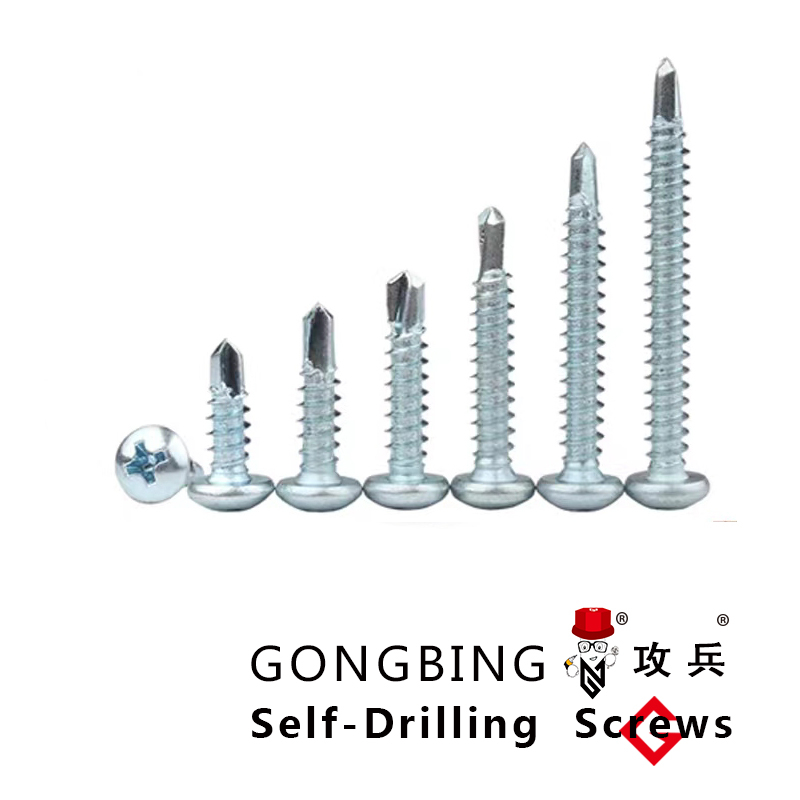phosphate drywall screws
Understanding Phosphate Drywall Screws The Smart Choice for Your Projects
When it's time to hang drywall, selecting the right screws is crucial for ensuring a long-lasting, secure installation. One type of screw that has gained popularity among contractors and DIY enthusiasts alike is the phosphate drywall screw. Understanding the benefits and specifications of phosphate drywall screws can help you make an informed choice for your next project.
What Are Phosphate Drywall Screws?
Phosphate drywall screws are specially designed screws coated with a phosphate layer. This coating serves multiple purposes, enhancing the screw's performance and longevity. By default, most drywall screws are made from steel, which provides the necessary strength to hold drywall sheets securely in place. However, bare steel is prone to corrosion, especially in humid environments. The phosphate coating mitigates this risk, making these screws a wise choice for various indoor and outdoor applications.
Benefits of Phosphate Coating
1. Corrosion Resistance The primary advantage of phosphate drywall screws is their resistance to rust and corrosion. The phosphate layer acts as a barrier, protecting the steel beneath from moisture and environmental elements. This is particularly vital in areas with high humidity or exposure to the elements, ensuring the longevity of your drywall installation.
2. Improved Grip The phosphate coating also enhances the screw's grip in the material. This means that when you drive the screw into drywall, it holds more securely, reducing the risk of loosening over time. This improved grip is essential for maintaining the integrity of your walls, especially when they bear weight.
3. Ease of Use Phosphate drywall screws are designed for easy driving. The coating reduces friction, allowing the screws to penetrate materials smoothly. This feature makes them particularly appealing for large projects, as it saves time and effort during installation.
4. Versatility While specifically designed for drywall, phosphate screws are suitable for various applications, including fastening wood and metal sheathing. Their versatility makes them a valuable addition to any toolbox, allowing users to tackle multiple projects without needing different fasteners.
phosphate drywall screws

5. Cost-Effective Generally, phosphate drywall screws are competitively priced compared to other options on the market. When considering their durability and performance, they often provide better value over time, as fewer replacements and repairs are needed.
How to Choose the Right Phosphate Drywall Screws
When selecting phosphate drywall screws, consider the following factors
- Length and Diameter Choose screws that are appropriate for the thickness of the drywall and the underlying materials. Standard drywall is typically ½ inch thick, so 1 1/4-inch screws are commonly used. However, for thicker drywall, longer screws may be necessary.
- Head Type Phosphate screws come in various head types, including bugle, flat, and pan heads. Bugle heads are the most common for drywall, as they provide a flush finish that minimizes tearing of the drywall paper.
- Driver Compatibility Make sure the driver bit matches the screw head. Most drywall screws use a Phillips head, but check the packaging to confirm.
Conclusion
Phosphate drywall screws are an excellent choice for anyone looking to ensure a secure, durable installation of drywall. Their corrosion resistance, improved grip, ease of use, versatility, and cost-effectiveness make them a smart addition to any building project. Whether you're a professional contractor or a DIY enthusiast, using phosphate screws will help you achieve a high-quality finish that stands the test of time. So, the next time you're ready to tackle a drywall project, reach for phosphate drywall screws and experience the difference they can make.
-
Weatherproof Plastic Expansion Anchors for OutdoorNewsJun.06,2025
-
Sustainability in the Supply Chain: Eco-Friendly TEK Screws ProductionNewsJun.06,2025
-
Load-Bearing Capacity of External Insulation FixingsNewsJun.06,2025
-
Double Head Bolts: Enhancing Efficiency in Industrial MachineryNewsJun.06,2025
-
Corrosion Resistance in Chipboard Screws: Coatings for Wholesale DurabilityNewsJun.06,2025
-
Butterfly Toggle Bolts : Enhancing Structural ResilienceNewsJun.06,2025
